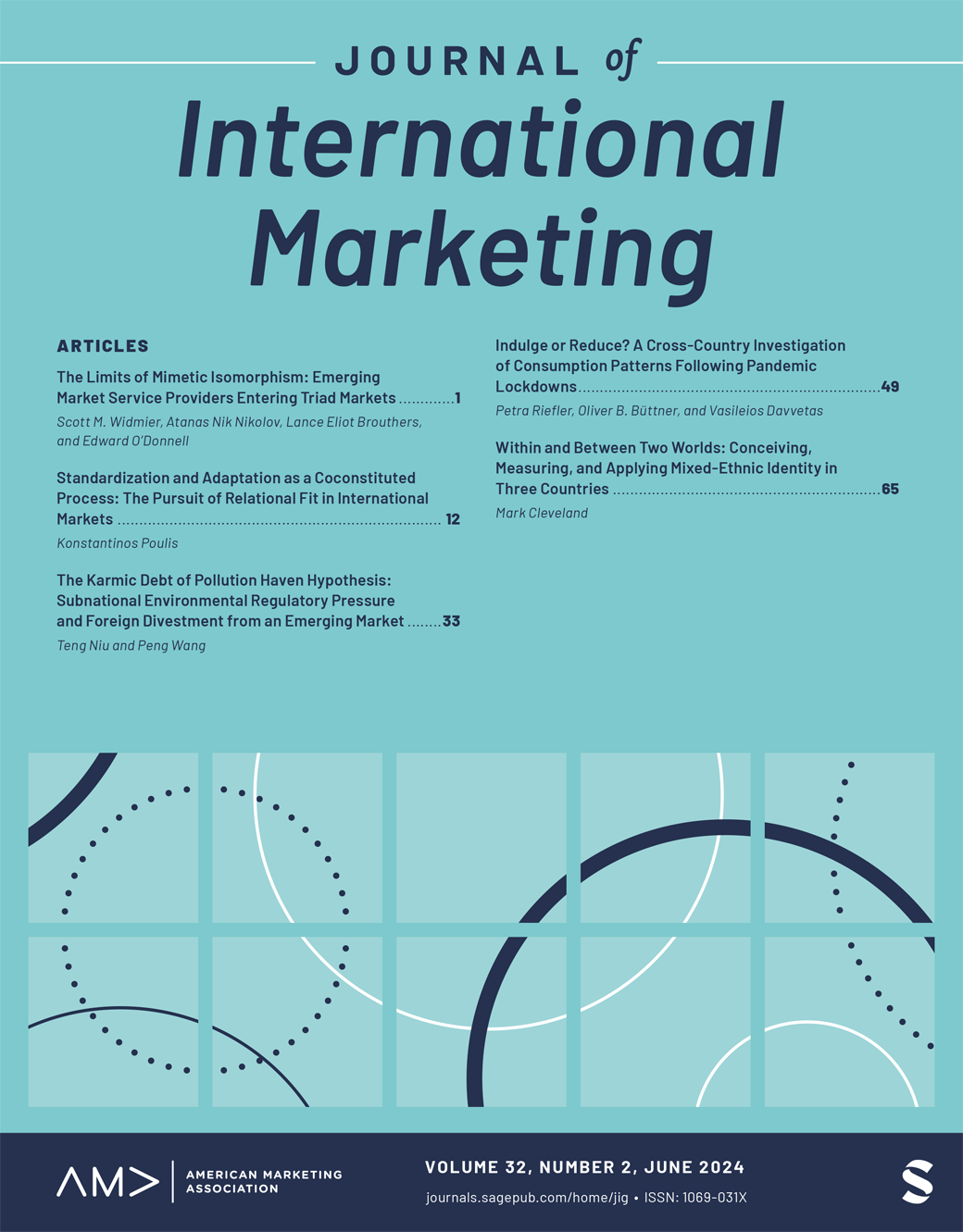EXPRESS:跨文化环境中的稀缺性诉求:一个理解跨文化环境中稀缺性诉求有效性的综合框架
IF 4.2
2区 管理学
Q1 BUSINESS
引用次数: 0
摘要
营销中的稀缺性诉求长期以来一直受到学者和实践者的关注,但我们对其在不同文化中的有效性知之甚少。利用文化差异(即自我概念、对独特性的需求和对规范影响的敏感性),作者调查了文化对(基于需求与基于供应的)稀缺吸引力有效性的影响。作者还研究了产品知名度的影响,同时考虑了文化对稀缺性吸引力有效性的调节作用(基于需求vs.基于供应)。为此,作者对来自巴基斯坦和法国的参与者进行了一项实验研究。作者发现(i)在东方文化中,基于需求的稀缺性诉求比基于供应的稀缺性诉求更有效,而在西方文化中则相反;(ii)与低知名度产品相比,文化对高知名度产品的调节作用更强;(iii)相互依赖(与独立)自我的各自普遍性及其对规范影响敏感性(SNI)和独特性需求(NFU)的后续影响介导了文化的调节作用。最后,作者讨论了这些发现的主要理论贡献和管理意义,并提出了未来的研究方向。本文章由计算机程序翻译,如有差异,请以英文原文为准。
EXPRESS: Scarcity Appeals in Cross-Cultural Settings: A Comprehensive Framework to Understand the Effectiveness of Scarcity Appeals in Cross-Cultural Settings
Scarcity appeals in marketing have long captured the attention of scholars and practitioners, yet we know little about their effectiveness across different cultures. Drawing on cultural differences (i.e., self-concept, need for uniqueness, and susceptibility to normative influence), the authors investigated the impact of culture on the effectiveness of (demand vs. supply-based) scarcity appeal. The authors also studied the impact of product visibility while considering the moderating effect of culture on the effectiveness of scarcity appeals (demand vs. supply-based). In doing so, the authors conducted an experimental research based on the participants from Pakistan and France. The authors found that (i) demand-based scarcity appeals were more effective than supply-based scarcity appeals in Eastern cultures, whereas the reverse was found in Western cultures; (ii) such moderating role of culture was stronger for high visibility products as compared to low visibility products; and (iii) the respective prevalence of interdependent (vs. independent) self and its subsequent impact on susceptibility to normative influence (SNI) and need for uniqueness (NFU) mediated the moderating role of culture. The authors concluded by discussing these findings' key theoretical contributions and managerial implications and suggesting future research directions.
求助全文
通过发布文献求助,成功后即可免费获取论文全文。
去求助
来源期刊

Journal of International Marketing
BUSINESS-
CiteScore
8.70
自引率
17.20%
发文量
28
期刊介绍:
As the globalization of markets continues at a rapid pace, business practitioners and educators alike face the challenge of staying current with the developments. Marketing managers require a source of new information and insights on international business events. International marketing educators require a forum for disseminating their thoughts and research findings. Journal of International Marketing(JIM) is an international, peer-reviewed journal dedicated to advancing international marketing practice, research, and theory. Contributions addressing any aspect of international marketing management are published each quarter.
 求助内容:
求助内容: 应助结果提醒方式:
应助结果提醒方式:


